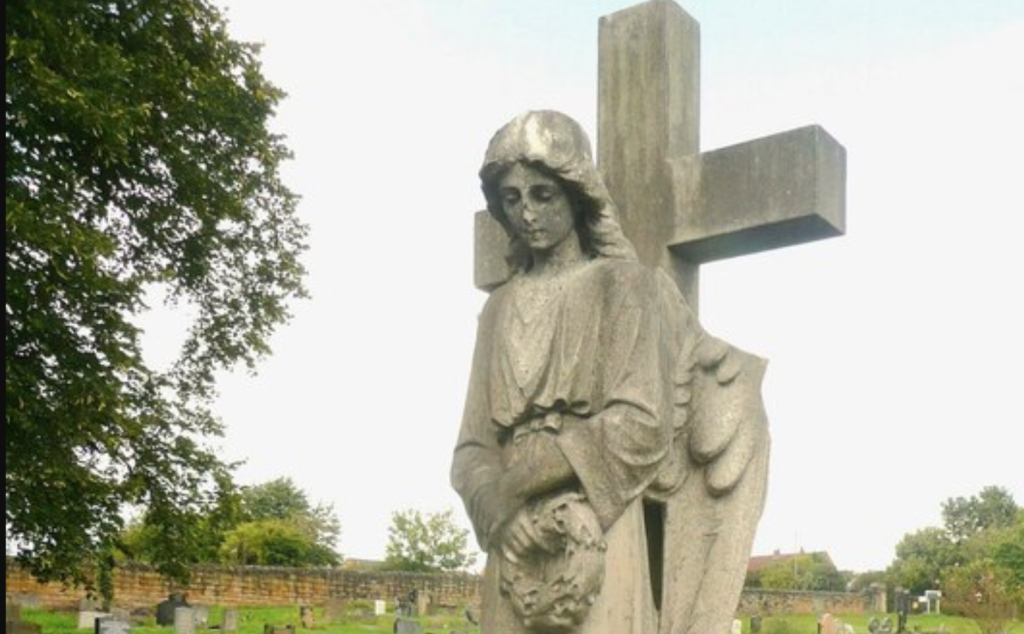

Personhood laws matter for the living—and the dead
One day, when I get to Heaven, I look forward to meeting two people I knew for a brief while, but never alive outside the womb. Isaiah Williams and Ezekiel Williams were born at sixteen and twenty weeks gestation respectively in 2016 and 2017, and never drew a breath of their own in this world. This last detail turned out to be legally significant.
Christians know where dead babies go—to Heaven, to be with Jesus. And yet, what should the living do with their tiny bodies in the meanwhile? When the Dobbs decision was passed on June 24, 2022, it triggered other decisions that are relevant for the question at hand. The answers turned out to be state-specific and surprisingly complicated. They show patently the disconnect between Christian theological truths about personhood and the reality of life in the secular world.
On Ash Wednesday 2017, I drove to my midwife’s office for a twenty-week ultrasound. I had lost my previous pregnancy at sixteen weeks. Still, I had two living children and no signs of trouble during this pregnancy. But when I got to the ultrasound, an awkward silence ensued when the technician passed her gel-soaked wand over my stomach. Abruptly she left the room. When she returned with my midwife, the latter gently informed me that the baby had no heartbeat.
Twenty weeks is a significant milestone. A baby born dead after twenty weeks is classified as a stillbirth rather than a miscarriage. Medically speaking, such a delivery is riskier and best done under medical observation. And so, I was admitted into the hospital overnight to be induced. After a long and sleepless night, I delivered the baby the next morning. A little boy, perfectly formed but mysteriously dead. Ezekiel Williams.
Paperwork is a guarantee of life, just like death and taxes. In fact, both death and taxes require extra paperwork. Filling out paperwork in the hospital for this baby, I had to answer a key question: Did he ever draw a breath outside the womb? The answer was no. This meant that legally he could not be buried in a cemetery in Georgia where laws at the time only allowed cemetery burial for those who had drawn at least one breath alive.
The hospital was only too happy to take the tiny body for testing and never return it to us. But we could not allow the hospital to dispose of him as medical waste. This was my son. He had a name, he was loved, and this unexpected loss felt so unimaginably cruel.
Thankfully, as we already knew from the previous second trimester loss, a baby born dead could legally be buried on our property. And so, the hospital released the body to a funeral home, whose director came a few days later and helped my husband bury the tiny casket next to its twin, already in the ground behind the house, in the shadow of a trio of oak trees. The two boys whom we never got to know in this life were now together. A few months later, we put a small headstone flat on the ground over their graves.
Two years later, God blessed our family with a little girl. All through that pregnancy, we prayed for nothing but God’s mercy—upon her and upon us. And this is why her name is Mercy.
Had we stayed in Georgia, perhaps this story would be over. We would still be living in that house, whose back deck overlooks whispering oaks, shading the tiny graves, as if reminding them daily: We will talk with you. You are not alone. Another song for another day is here, where the blackberries grow.
But we did not stay in Georgia. In July 2023, we said goodbye to the house, the graves, our friends, and moved halfway across the country to Ohio. Unsure what to do about the graves, we left them where they were. As is legally required, we disclosed their presence on the property to the buyer of our Georgia home, but he never asked any questions.
Until now. An abrupt text message from our realtor to my husband: “While removing some trees from the property, the buyer has discovered graves and is livid. He is threatening legal action. What do you want to do?”
The initial answer was simple: We had disclosed the burial, which had been done legally on the property, by a local funeral home. The new owner has no legal ground for suing us. Still, we are happy to move the burial to another location—but where? Personhood laws, which made our decision for us before, now allowed another option.
When Roe v. Wade was decided in 1973, one specific clarification therein was that a fetus was not a person. Per the American Bar Association: “Justice Harry Blackmun stated in Roe that ‘The word ‘person,’ as used in the Fourteenth Amendment, does not include the unborn.’ Thus, one of Roe’s holdings was that a pre-viability fetus is not a person in the eyes of the Constitution.” The overthrow of Roe in Dobbs, however, reopened this question for consideration, delegating the potential to decide the answer to the states. Enter fetal personhood laws. One can now be a person in the eyes of the law in one state, but not another. These laws have been in the news largely in connection with conversations around abortion and IVF, but they hold additional implications.
Cemeteries, as my husband and I had learned in 2016, use personhood laws to determine who may—or may not—be buried there. When we were searching for a place to bury Isaiah and Ezekiel, the land behind our house appeared to be the only option. True, Catholic cemeteries had always welcomed miscarried infants for burial, but we are not Catholic. Conservative evangelical churches, like ours, certainly saw our infants as persons. But the church did not have its own cemetery.
In Georgia, House Bill 481 was passed initially in May 2019, but its legality was questionable at the time, with Roe still in effect. The law banned abortion after six weeks, in effect affirming the personhood of all babies after six weeks gestation. Once Dobbs was passed, the law came into full effect. As a result, our babies can now be buried in a cemetery.
This is good news. Our new home state of Ohio does allow (even require!) fetal remains to be buried in a cemetery unless cremated—which is part of the old law that banned abortion after six weeks. That law was overturned in a state referendum in November 2023, so abortion in Ohio is now legal until twenty-one weeks and six days. But cemetery burial for all “products of conception” remains possible—for now. Still, transferring remains from another state is tricky. It appears that Isaiah and Ezekiel Williams will await the resurrection in Georgia soil.
This story, however, is about more than just my family; it reveals troubling cultural assumptions. Fencing off cemeteries based on who is—or is not—a person legally is yet another reminder of our culture’s callous disregard of the theological truth that every person is precious because made in God’s image.
We lack sympathy for these dead—and for other dead—because we lack sympathy for the living. Too many in our society see people, both living and dead, as primarily inconveniences to their personal rights and desires. The entire abortion industry is built on this assumption and demand.
We forget that God’s image bearers, once created, never cease to be image bearers. It is the beauty of Christ’s promises in the Resurrection that gives us our only true hope—the promise of our eternal home with God—even, or maybe especially, in the presence of tiny caskets in tiny graves.
Nadya Williams is the author of Cultural Christians in the Early Church, Mothers, Children, and the Body Politic: Ancient Christianity and the Recovery of Human Dignity, and Christians Reading Classics (forthcoming, Zondervan Academic, 2025). She is Managing Editor for Current, where she also edits The Arena blog, and Contributing Editor for Providence Magazine and Front Porch Republic.
Thank you for this article, so much information and heart in your story. I want you to know that– I actually canceled my subscription;
because of the stubborn, and in my opinion no sense, thinking about the election by J F. I have not seen your view, but because of this article
and your position part of this publication, I renewed, just to donate to the effort to bring informative articles.
Thank you again for this article.
Powerful.